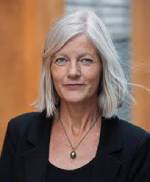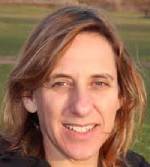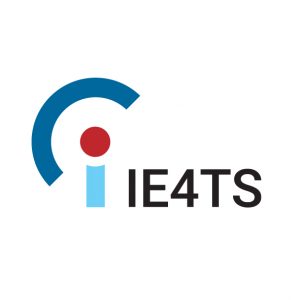5 member universities of Circle U. Alliance (Humboldt of Berlin, UCLouvain, Oslo, Aarhus and Paris) together with the University of Lisbon have been awarded a Strategic Partnership funded by the Erasmus+ programme. The Strategic Partnership InnovEd4TS (Innovative Education For Transferable Skills) focuses on the analysis and the development of initiatives that promote the acquisition of transferable skills among students. The first step of the project has just been completed.
A Strategic Partnership in support of the construction of the European University Circle U.
This Strategic Partnership brings together five of the seven universities of the European University Circle U. and aims to strengthen the Alliance through increased cooperation in educational innovation.
After a first stage of definition and selection of transferable skills by the Curricular Advisory Board bringing together experts from the six partner universities, a phase of visits (postponed to the first semester 2020/2021 due to the pandemic) will begin in order to share and analyse pedagogical projects related to transferable skills within each university.
In-depth expertise on transferable skills
Why transferable skills?
Transferable skills are considered strategic for the students, essential to their education and their professional future, as Benoît Raucent, expert for the University of Louvain and Director of the Louvain Learning Lab reminds us: “When we look at the jobs of tomorrow, we see that transferable skills are at the forefront. (…) We need the university to prepare the work on the skills of tomorrow. ».
However, these skills are not always well taken into account in the curricula. “Teachers tend to focus on classical cognitive knowledge and transferable skills are often treated secondarily,” explains Benoît Raucent.
Tina Bering Keiding, expert for Aarhus University, comes back to the reasons behind the partnership: “It has become increasingly clear to me that we either omit to assess generic skills because it seems difficult to integrate these skills in the curriculum or we tend to have these skills as a hidden – but very vivid – curriculum, meaning that they count in the final assessment but in vague and sometimes even obscure ways“.
Which transferable skills?
Based on the literature and on existing grids, the Curricular Advisory Board has chosen 12 skills to be explored within the framework of this Strategic Partnership.
« We need the university to prepare the work on the skills of tomorrow. »
Benoit Raucent

Drawings by Benoît Raucent
Proposing a methodology: the Grid of Transferable Skills
“The subject of the transferable skills is not simple,” acknowledges Christine Rampon, expert for Université Paris Cité. “There are many documents circulating on the topic, but we don’t know which ones to choose and often the concepts are not explained”.
The ambition is therefore to provide an analytical grid that teachers can easily appropriate and that allows them to evaluate the acquisition of skills by their students. According to Mariana Gaio Alves, expert for the University of Lisbon, “grids are important to provide us with a common framework for analysis“.
A matrix has thus been constructed, including three levels of acquisition for each competence: “Each competence is described at three levels: Basic, Intermediate and Advanced. Put together, we end up with a “rubric” or “matrix” that scaffolds assessment of the students’ performance” explains Tina Bering Keiding
The common matrix has been designed to apply to all disciplines and at the same time take into account their specificities. Benoît Raucent shares the difficulty of this work: “It is not easy to describe what a skill is and to make grids that are universal“.
“We will have a clear grid that can help all the disciplines to progress, for teachers and students alike. They will have a better understanding of what is expected from them,” adds Christine Rampon.
.
« We will have a clear grid that can help all the disciplines to progress, for teachers and students alike. They will have a better understanding of what is expected from them».
Christine Rampon
.
Reflective professors
Supporting the academic staff in their existing reflection upon their professional practices is one of the main goals of the InnovEd4TS Strategic Partnership.
“What we want is to have reflective teachers,” says Benoît Raucent. “One element that is really important in our approach is the SOTL, Scholarship of Teaching and Learning. In this spirit, we must ensure that teachers not only innovate but also know why they innovate.”
The resulting Grid which will be developed as a digital tool by 2021, should allow for peer review or self-assessment. “Teachers need to be able to use it autonomously and be self-sufficient” explains Christine Rampon.
Benoît Raucent emphasizes the advantages of the grid in terms of self-evaluation. “The fact that we chose a matrix is interesting on several levels because it allows professors to have immediate feedback but also to have a perspective on what they can improve. (…)they can evaluate themselves, know where they stand and see what the next step will be”.
« We must ensure that teachers not only innovate but also know why they innovate »
Benoit Raucent
Field visits: towards evidence-based education
After this first phase to build the theoretical framework of the project, the visits phase will start next autumn: mobile panels from our six universities will travel to analyze a total of ten initiatives. These initiatives are pedagogical projects linked to transferable skills developed in each partner university. The mobile panels will analyse each initiative on the basis of the work carried out upstream by the Curricular Advisory Board.
These visits will be an opportunity to provide feedback to the teachers who are the leaders of the initiatives. “The best feedback is feedback that is co-constructed (…) The idea is that the experts will bring their viewpoint and make the leaders resonate with the things they know but have never highlighted,” explains Benoît Raucent.
The aim of the visits is also to test the Grid developed by the experts of the Curricular Advisory Board: “Is it usable as it stands? Should it be completed/corrected? Is it understandable to everyone?“(Christine Rampon).
The field visits will lead in 2021 to recommendations from the Curricular Advisory Board on the possibility of replicating, scaling upor co-developing initiatives.This approach complies with the spirit of sharing promoted by the European University Circle U. “Our approach is that of Evidence Based education” explains Benoît Raucent: “we look at what works in the literature, we innovate accordingly, and then we measure to share with others. It is this idea of wrapping up that is important“.
« Our approach is that of Evidence Based education: we look at what works in the literature, we innovate accordingly, and then we measure to share with others. It is this idea of wrapping up that is important. »
Benoît Raucent
Enriching professors’ professional practices through networking
Networking is an essential dimension of the project, both at an institutional level and at the level of the pedagogical teams. “The partnership gives us the opportunity to build a professional community” explains Tina Bering Keiding.
Networking will enable “continuous development of teaching and teacher competences throughg enuine didactic dialogues among colleagues across institutions.” (Tina Bering Keiding)
Moreover, networking will undoubtedly allow more creative uses of the Grid, due to a broadening of the circle of its users: “Having a network, a collective intelligence will make it possible to imagine uses that were not thought of at the beginning. (…) The larger the circle, the greater the number of interesting but unpredictable spin-offs“.
« The partnership gives us the opportunity to build a professional community. »
Tina Bering Keiding
The Curricular Advisory Board
The CAB comprises faculty members from each partner university. They have a strong commitment to educational innovation and have led initiatives to promote the acquisition of transferable skills.

Benoît Raucent is a professor at the École Polytechnique of the University of Louvain. In 2000, he coordinated the reform of teaching aimed at introducing problem-based and project-based learning (PBL)in EPL. He is the author of several books and practical guides on higher education pedagogy and more particularly on PBL and the new role of professors. Since October 2014, he is Director of the Louvain LearningLab.

Tina Bering Keiding is Deputy Head and Associate Professor at the Centre for Teaching Developement and Digital Mediaat Aarhus University. A specialist in higher education pedagogy, she has written numerous books and articles on both theoretical and practical didactics, on general and more specific topics such as the use of skills portfolios

Christine Rampon is Assistant Professor in Biology. From 2018 to 2020, she was Director of SCRIPT (Service commun de ressourcesinformatiques, pédagogiques et technologiques), the Digital Pedagogy Center at the University Paris-Diderot. She has led many projects on transferable skills being responsible for an opencourse on scientific reasoning. She is also involved in a research work on the professional identity of higher education professors in biology.

Mariana Gaio Alves is Assistant Professor at the Institute of Education of the University of Lisbon since 2018. She is currently involved in a Post-Graduation Degree on Pedagogy in Higher Education and her research interests are the development of higher education professors, academic identities and course design in higher education.

Wolfgang Deicke is a professor in politics and sociology. Before becoming the coordinator of the bologna.lab at Humboldt-Universität in 2012, he variedly taught sociology, politics and the history of European thought and society at the (now) University of Northampton, and Ruskin College, Oxford. His current research interests are the development of (student) research competencies and organisational development in Higher Education.

Anders Malthe-Sørenssen is a Professor in physics at the University of Oslo. He is Director of the Center for Computing in Science Education, one of Norway’s eight national centres of excellence in education. He has developed an interdisciplinary Master’s programme in physics and geology and has received several national awards for the quality and innovative nature of his teaching.

